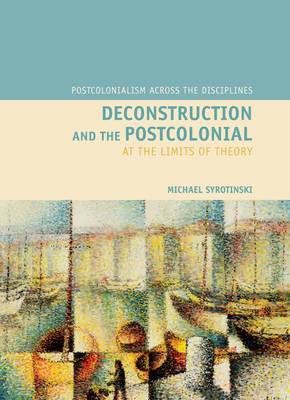
- Afhalen na 1 uur in een winkel met voorraad
- Gratis thuislevering in België vanaf € 30
- Ruim aanbod met 7 miljoen producten
- Afhalen na 1 uur in een winkel met voorraad
- Gratis thuislevering in België vanaf € 30
- Ruim aanbod met 7 miljoen producten
Zoeken
€ 254,45
+ 508 punten
Omschrijving
As postcolonial studies shifts to a more comparative approach one of the most intriguing developments has been within the Francophone world. A number of genealogical lines of influence are now being drawn connecting the work of the three figures most associated with the emergence of postcolonial theory - Homi Bhabha, Edward Said, and Gayatri Spivak - to an earlier generation of French (predominantly 'poststructuralist') theorists. Within this emerging narrative of intellectual influences, the importance of the thought of Jacques Derrida, and the status of deconstruction generally, has been acknowledged, but has not until now been adequately accounted for. In Deconstruction and the Postcolonial, Michael Syrotinski teases out the underlying conceptual tensions and theoretical stakes of what he terms a 'deconstructive postcolonialism', and argues that postcolonial studies stands to gain ground in terms of its political forcefulness and philosophical rigour by turning back to, and not away from, deconstruction.
Specificaties
Betrokkenen
- Auteur(s):
- Uitgeverij:
Inhoud
- Aantal bladzijden:
- 288
- Taal:
- Engels
- Reeks:
- Reeksnummer:
- nr. 2
Eigenschappen
- Productcode (EAN):
- 9781846310560
- Verschijningsdatum:
- 1/09/2007
- Uitvoering:
- Hardcover
- Formaat:
- Genaaid
- Afmetingen:
- 165 mm x 239 mm
- Gewicht:
- 367 g

Alleen bij Standaard Boekhandel
+ 508 punten op je klantenkaart van Standaard Boekhandel
Beoordelingen
We publiceren alleen reviews die voldoen aan de voorwaarden voor reviews. Bekijk onze voorwaarden voor reviews.











